Our dedication to Racial Equality and Social Justice (RESJ) spans decades. Learn more about our RESJ Initiative
School Nurse Education
-
Credits:
32
-
Degree:
Master of Education
Program Description
This program has transitioned to an online, fully asynchronous model. Please visit the following link for more information:
https://global.cambridgecollege.edu/masters-degrees/master-of-education-school-nurse-education/
Related Programs at Cambridge College
If you’re still exploring degree options, you might be interested in learning more about these programs at Cambridge College:
Curriculum
Theory and practice of program evaluation with emphasis on how to focus an evaluation, design a program evaluation, use quantitative and qualitative methods in evaluation, assess program implementation, measure attitudes, measure performance and use tests, analyze data, and communicate evaluation findings. Special topics include needs assessment, cost-benefit analysis, and an introduction to grant and proposal development.
Electives must be in health, family & consumer sciences, instructional technology, counseling psychology, school guidance, special education, or teaching skills and methodologies. If courses in these areas are not available, other courses in education may be taken as electives with program chair’s approval.
Admissions
-
Admission Test:
No standardized graduate school tests required for admission into non-licensure programs
-
Admissions Office:
1-800-829-4723
- Application Form:
-
Application Fee:
$50 ($100 for international students)
Program Requirements
Applicants must have Registered Nursing License (RN) and submit the completed RN License Requirement Form and be prepared to show license to the program chairperson when class begins.
Health Requirements for Massachusetts Students
The Massachusetts Health Department and Cambridge College require the following of students in Massachusetts:
Immunizations – All students in Massachusetts are required to get certain immunizations before you can register for your first term. See form
Health Insurance – In Massachusetts, undergraduate students taking nine or more credits/term and graduate students taking six or more credits/term must enroll in the College’s health insurance plan. Students who have insurance with comparable coverage may request a waiver. See information and enroll or waive.
School Requirements
International Students
International students need to provide supplemental documentation:
- Official demonstration of English language proficiency
- Supplemental documentation for issuance of I-20
- International transcripts, evaluated by an accepted evaluation service
Transfer Credit
Please complete the transfer credit request form if you wish to have prior course work evaluated for transfer. Learn more about transferring credits.
Tuition
-
Credits:
32
-
Cost per credit hour:
$639
-
Application Fee:
$50 ($100 for international students)
-
Health Insurance Fee:
$3,940 - Required for Massachusetts students only. See waiver details on Tuition & Fees page.)
-
Internship/Practicum Fee:
$400
Note: Rates are as of July, 2022, and are subject to change without notice. Rates apply to all students, unless otherwise noted.
Financial Aid
Cambridge College offers financial aid to students in our degree programs who are enrolled at least half time. Undergraduate students must be enrolled in at least 6 credits each term. Graduate and doctoral students must be enrolled in at least 4 credits each term. Learn more
Grants, Scholarships and Loans
Cambridge College welcomes the opportunity to support your efforts to pay for college. Federal, state and local resources in the form of grants, scholarships, loans and work-study, including Cambridge College Scholarships, are available to help defray the cost of tuition. Learn more
Getting Your Company to Help
Many companies have tuition assistance programs, designed to help their employees with their professional development. Learn more


